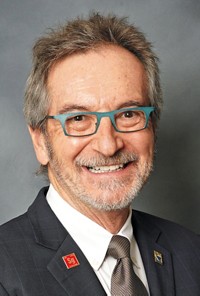Advertisement
Grab your lab coat. Let's get started
Welcome!
Welcome!
Create an account below to get 6 C&EN articles per month, receive newsletters and more - all free.
It seems this is your first time logging in online. Please enter the following information to continue.
As an ACS member you automatically get access to this site. All we need is few more details to create your reading experience.
Not you? Sign in with a different account.
Not you? Sign in with a different account.
ERROR 1
ERROR 1
ERROR 2
ERROR 2
ERROR 2
ERROR 2
ERROR 2
Password and Confirm password must match.
If you have an ACS member number, please enter it here so we can link this account to your membership. (optional)
ERROR 2
ACS values your privacy. By submitting your information, you are gaining access to C&EN and subscribing to our weekly newsletter. We use the information you provide to make your reading experience better, and we will never sell your data to third party members.
Policy
Strong Nominees, Strong Leaders
by VALERIE J. KUCK, CHAIR, COMMITTEE ON NOMINATIONS & ELECTIONS
November 22, 2004
| A version of this story appeared in
Volume 82, Issue 47
Many headlines in the popular press stress the importance of good leadership. We have all witnessed organizations rise to new heights (or fail to achieve their potential) because of the quality of their leaders. The American Chemical Society is no exception: It needs strong leaders with the appropriate array of experiences, skills, and vision to help the society better serve its members and to promote the chemical enterprise.
The Committee on Nominations & Elections (N&E) is charged with the task of preparing slates of nominees or candidates for the society's leadership positions. The 15 members of N&E, elected by their fellow councilors, work hard to identify strong leaders for the positions of president-elect, district directors, and directors-at-large.
The challenge that the committee has, of course, is defining the experiences, talents, or perspectives that make an individual a "strong" nominee or candidate. Some members of the society believe that experience within ACS, specifically as a member of the council, is a key criterion. They correctly note that participation in ACS governance heightens one's awareness of the society's many programs designed to meet members' needs and provides a deeper understanding of the positive impact the society has had not only on its members but on all chemical scientists. Other members believe that managerial experience coupled with a proven ability to deal adeptly with complex business issues, such as mergers, acquisitions, alliance-building, and new product development; strong leadership skills; and expertise in communicating the mission of the society should be given substantial weight.
Fortunately, ACS has more than 159,000 members on whom it can draw for assistance and guidance in meeting its responsibilities. If you follow reports from the ACS Board of Directors, you'll see that the range of issues that it addresses is becoming more extensive and the issues themselves more complex. The board provides input to and oversight for member services and products—certainly no membership society could maintain a (remarkable) retention rate of 93 to 94% without a strong focus on the needs of its members—but the board also must deal with a wide range of fiscal matters.
ACS has two main activities: First, as a large membership society, it seeks to support its members through a wide array of programs. Second, it has two large publishing concerns (Chemical Abstracts Service and the ACS Publications Division), which not only provide useful products for chemists and chemical engineers but also bring in large revenues to the society ($315 million in 2003). For ACS to be successful, both activities must succeed and work together, as our extensive portfolio of member services receives substantial financial support from the publishing revenues.
The board must deal with both "member" and "business" issues. How does this impact N&E as it identifies nominees and candidates for the board? The committee needs to provide the electorate (members, councilors) with balanced slates—candidates and nominees who have familiarity with ACS efforts, broad business knowledge, a diversity of leadership experience, and a proven track record in making prudent choices. N&E uses a broad range of criteria for selecting candidates and nominees, including outstanding service in ACS governance activities, managerial experience, leadership, business acumen, scientific or technical achievements, incumbency with distinction, and distinguished service in organizations outside of ACS.
This need for balance holds true for slates for president-elect as well. ACS presidents have a more public face for the society than do other board members; they give testimony before government agencies and represent the society in interactions with international organizations. But presidents also serve (and vote) on the board during their three years in the presidential succession.
To better meet the needs of the board, N&E has begun a dialogue with the chair of the board to identify experiences and competencies that will best equip those elected to the board to make effective decisions. The board members themselves have helped us in this task recently by defining their individual and collective roles and responsibilities. N&E greatly appreciates this input because it must make its decisions without the benefit of watching the board in executive session when it deals with the weightier issues.
The society's governing documents are largely silent on the subject of a candidate's background, experience, or achievements. The bylaws require only that candidates for the board and president-elect be members of the society. The councilors on N&E are entrusted to identify individuals who in their judgment have the talent and experience to best represent and govern the society, thus permitting the electorate to choose its future leaders from a wide pool of talented individuals with diverse experiences.
If you are aware of members having the appropriate knowledge and expertise for board consideration, please send their names along with a brief statement for the basis of your decision to Liz P. Beckham at ACS headquarters (l_beckham@acs.org). As the society faces the challenges of the 21st century, it is imperative that ACS has the best leadership possible.









Join the conversation
Contact the reporter
Submit a Letter to the Editor for publication
Engage with us on Twitter